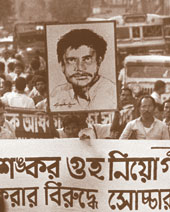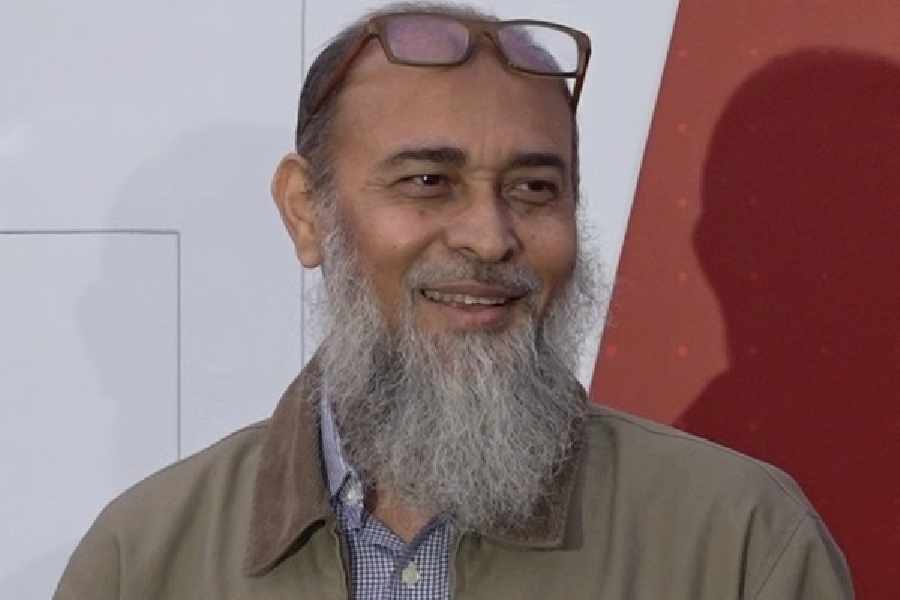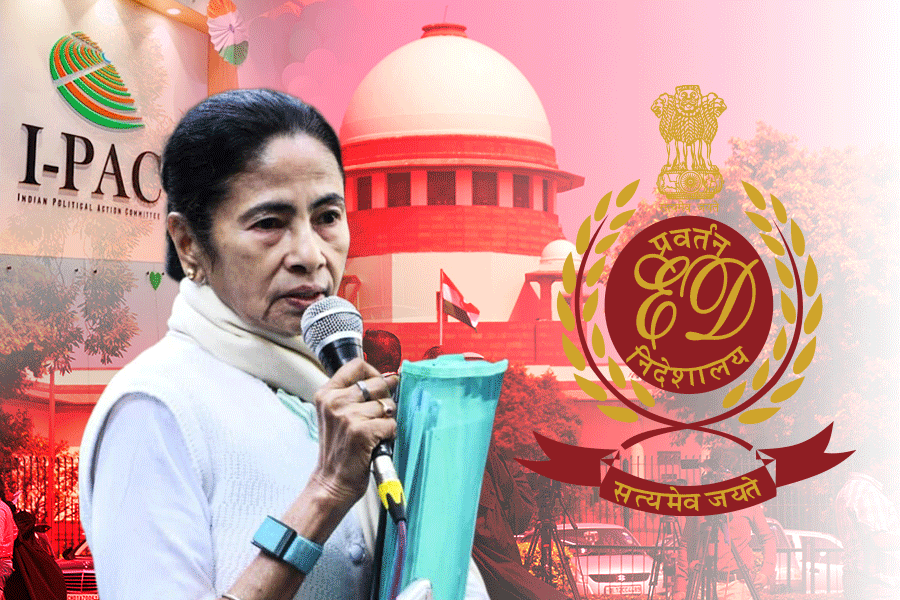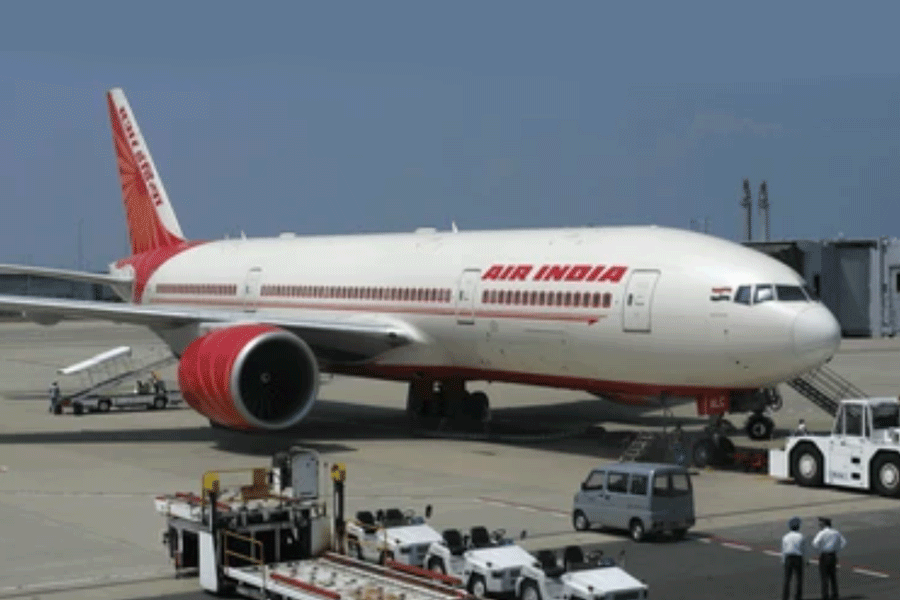 |
| POSTER WAR: Activists protest the killing of Shankar Guha Niyogi |
For the last 13 years, the Chhattisgarh Mukti Morcha (CMM) has carefully preserved an urn in its small office in Durg. The ashes in the urn could have been immersed and the last rites of Shankar Guha Niyogi performed a long time ago, but then the path to justice is not always an expressway. It?s taken a while to bring Niyogi?s alleged killers ? members of the region?s industrial mafia ? to court, and it is taking even more time to get justice.
Now, however, it looks like the trade union leader?s soul will finally be able to rest in peace. ?Please pray that we get the justice due to us, and we can finally immerse our great leader?s ashes,? pleads Sudha Bharadwaj, secretary of the CMM. The Niyogi case came up for hearing before the Supreme Court on August 24 this year. The deliberations are over, and all is settled except a formal verdict.
Bharadwaj had come to Delhi last week as a part of a speakers? panel called the Niyogi Convention ? an attempt to understand the power of the labour movement as envisaged by Niyogi. The CMM has good friends ? author Arundhati Roy, economist Jayati Ghosh, information rights activist Aruna Roy, SC advocate Indira Jaising, and environmentalist Dunu Roy ? who have joined hands to take Niyogi?s cause further. They stress that the good work shouldn?t come to a standstill because the person who started it is no more, rather, it should be intensified, and they will ensure that it is.
In the Sixties, the industrial workers of the Chhattisgarh region, then in Madhya Pradesh, were part of a strange paradox: they were some of the poorest people of the country in one of its wealthiest regions. Chhattisgarh was a mineral-rich area, but the natural resources also brought in exploiters. All this was carefully observed by a youth who had come from Jalpaiguri in West Bengal to stay with his uncle and work at the Bhilai Steel Plant.
Shankar Guha Niyogi started various agitation movements in the region, championing the cause of the daily wage and contractual mine workers. Niyogi was even termed a militant for his activities by the police. He was jailed several times, but he managed to mobilise the workers of the region into forming the Chhattisgarh Mines Shramik Sangh (CMSS). The CMM was later formed as a sister organisation.
The CMSS ensured that daily wages went up from Rs 5 to Rs 19 and above (the minimum daily wage set by the government is now Rs 59), anti-liquor campaigns were started, a hospital was opened, and life got better for the workers. But it also made enemies of the local industry-owners, who together employed about a hundred thousand people, and were characterised by their shocking violations of labour laws.
On September 28 in 1991, three decades after Niyogi helped start the CMSS and CMM, the leader was murdered in his sleep. The accused were Paltan Mallah and his associates, goondas allegedly hired by the owners of the Simplex and the Kedia Group of industries. The case was tried in the sessions court at Durg with the CMM, the Central Bureau of Investigation (CBI) and the state of MP (later Chhattisgarh) as plaintiffs. In 1997, the court pronounced the accused guilty.
In a unique judgment in 1997, Mool Chand Shah and his brother Chandrakant Shah of the Simplex Group of Industries were given life imprisonment and fined Rs 10 lakh each, failing which they were to be subjected to another five-year term in jail. Paltan Mallah was given the death sentence, and his associates, Gyan Prakash Mishra, Abhay Singh and Awadesh were given life terms plus fines of Rs 2,000 each.
For the CMM, even this verdict was not easy to obtain. The trials were first held in closed courts, and it was found that the witnesses were threatened with dire consequences if they testified. Some disappeared, others retracted their testimonies. The CMM then filed a written petition to open the case to the public and ensure against the strong-arm tactics of the industrial mafia. Their request was granted. Every trial day would see members of the CMM filling up the courtroom, silently supporting the witnesses, and quelling their fears to a certain extent.
The Shahs, however, appealed to the high court. The sessions court judgment was revoked and the accused declared not guilty. The high court even dismissed evidence that was admitted by the lower court. ?The courts kept on pushing back the dates of hearing indefinitely, despite our appeals,? says Bharadwaj. Absence of plaintiff representation (the state of MP didn?t show up) and change of government made things really difficult for the CMM. They were even declared an anti-social organisation.
Thirteen long years after the murder of Niyogi, the case went to the Supreme Court this August. The final sentence is awaited. If truth prevails, Niyogi?s killers will finally be held accountable for their crime. But in the plains of Chhattisgarh, a lot has changed since then. The government?s liberalisation policies have made the local industries sick, and the CMM has taken up their cause. The very Simplex Group whose men allegedly murdered Niyogi have to look to the CMM for their survival now. Divine justice prevails, if nothing else does.










